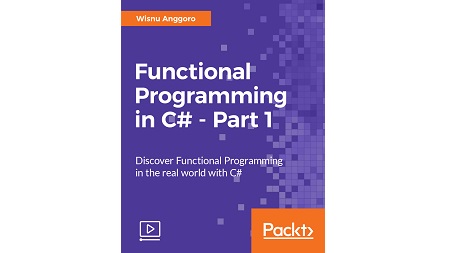
English | MP4 | AVC 1920×1080 | AAC 44KHz 2ch | 2h 08m | 534 MB
Uncover the secrets of functional programming using C# and change the way you approach your applications forever
Functional programming makes your application faster, improves performance, and increases your productivity. C# code is written at a higher level of abstraction, so that code will be closer to business requirements, abstracting away many low-level implementation details.This video bridges the language gap for C# developers by showing you how to create and consume functional constructs in C#. We also bridge the domain gap by showing how functional constructs can be applied in business scenarios. We’ll take you through lambda expressions and extension methods, and help you develop a deep understanding of the concepts and practices of LINQ and recursion in C#.By the end of the video, you will be able to write code using the best approach and will be able to perform unit testing in functional programming, changing how you write your applications and revolutionizing your projects.
This course takes a pragmatic approach and shows you techniques to write better functional constructs in C#. We’ll also show you how these concepts can be applied in business scenarios.
What You Will Learn
- Develop an application using the functional approach
- Implement unit testing to functionally program code
- Create efficient code using functional programming
Table of Contents
01 The Course Overview
02 Introducing Functional Programming
03 Preparing the C# Compiler
04 Concepts of functional programming
05 Feeling Functional in C#
06 Transforming Imperative Code to Functional Code
07 The Advantages and Disadvantages of Functional Programming
08 Introducing Delegates
09 Built-in Delegates
10 Distinguishing Variance in Delegates
11 Getting to Know Anonymous Methods
12 Lambda Expressions
13 Subscribing for Events Using Lambda Expressions
14 The Advantages of Using Lambda Expression in Functional Programming
15 Getting Closer to Extension Methods
16 Calling Extension Methods in the Other Assemblies
17 Leveraging the Interface, Collection, and Object
18 Advantages and Limitations of the Extension Method
Resolve the captcha to access the links!